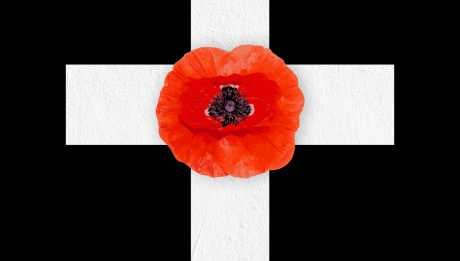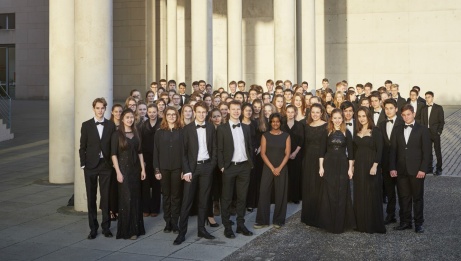“We were eighteen and had begun to love life and the world; and we had to shoot it to pieces. The first bomb, the first explosion, burst in our hearts.”
― Erich Maria Remarque, All Quiet on the Western Front
This November, the National Arts Centre will host two very special concerts in honour of those who lost their lives in World War One — which ended a century ago — and the sacrifices of all people in armed conflicts. In celebration of reconciliation, Germany’s National Youth Orchestra (BJO) will perform Britten’s War Requiem alongside the National Arts Centre Orchestra in Southam Hall on November 9. On November 11, following the Remembrance Day ceremony at the War Memorial, the BJO will perform a repertoire about war and remembrance with members of the National Youth Orchestra, Orkidstra and a chorus of young people.
The concerts are made possible with a generous gift from Ottawa author Sarah Jennings, and are dedicated to the memory of two brothers: Col. J. Ewart Osborne, D.S.O. and Col. Henry Campbell Osborne, C.M.G., C.B.E. Both had significant, yet very different experiences of the war — which ultimately saw their fortunes diverge.
Elder brother, Henry Osborne spent much of the war in London and Ottawa as part of the High Command, and was spared direct involvement in battle. After the war, Henry became the First Canadian Secretary of the Imperial (now Commonwealth) War Graves Commission, overseeing the creation of cemeteries near the battlefields for Canadian fallen and instrumental in the construction of the Vimy Memorial. Socially prominent and a friend of Mackenzie King, he made his permanent home in Ottawa and was particularly active in the arts, becoming one of the founders of the Dominion Drama Festival.
Ewart fought with the 48th Highlanders of Toronto. He was captured in April 1915 at the Second Battle of Ypres, the first gas attack of the war. He spent four years as a prisoner of war in German prison camps east of Dresden. After the war, Ewart returned to his family waiting in Britain. Perhaps suffering some form of PTSD (a malady not identified in those days), he initially refused to return to Canada, moving his family restlessly from place to place, living on the Continent for several years. He later settled back in his home in Toronto’s Rosedale, and led a quiet life for the rest of his days marked by a strict daily routine.
The young men and women who fought on either side of the Great War participated for many reasons, but never foresaw the daily horror that war brings. When they signed up to serve their country, the majority of them still entertained the romanticism of youth.
The November 9 and November 11 concerts with Germany’s National Youth Orchestra resurrects the hopefulness of the young through music—that universal language that is without boundaries or conflicts and speaks directly to our souls whatever our age.
Britten’s War Requiem will be performed on November 9 at 7:30 p.m. and the November 11 concert starts at 12:30 p.m. Both will be performed in Southam Hall.











